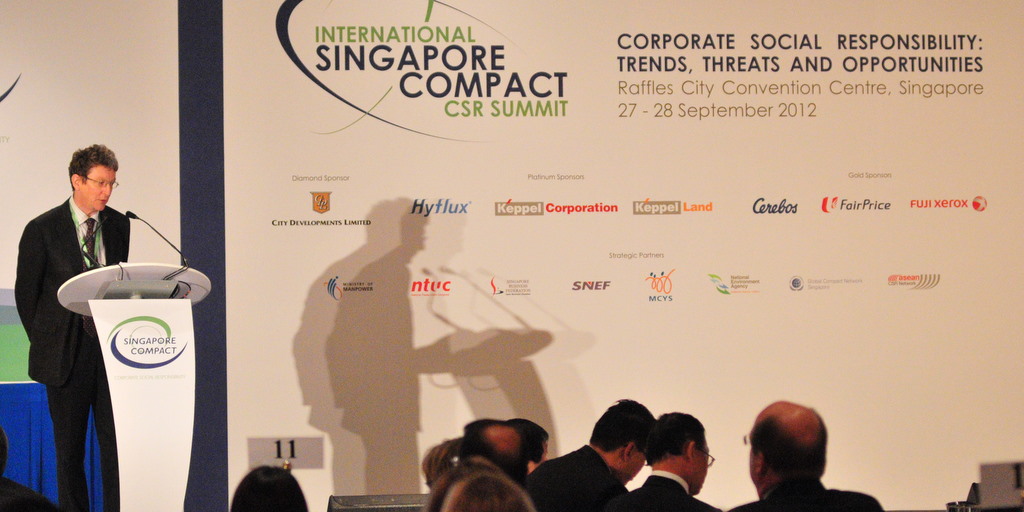
January 14, 2013, by ICCSR
Corporate Social Responsibility: Trends, Threats and Opportunities
It was great to be back at the Singapore Compact CSR Summit last year.
There appears to have been a continuing growth of interest in CSR among Singapore firms, public and civil society organisations, and professions. Moreover, the international interest was very exciting, both reflecting developments in the ASEAN region and interest in CSR in the region from governments and international agencies from further afield.
The developments I observed at the conference reflect some of the themes in my own presentation about CSR’s growth and relative acceptance by erstwhile sceptics, and its internationalisation coupled with anchors in myriad national, sub-national and local business systems and cultures.
There is an obvious challenge here from companies taking CSR across cultural and political borders, that CSR means different things to different people. There is no easy answer here other than that CSR must remain about the responsibility business takes for its own social, economic and environmental context and impacts. That the agendas vary may frustrate the purists but it is simply the reality of society and business relations.
So, even though there has been a fairly common shift in understanding CSR as something more than business philanthropy alone, there are great differences as to the new emphases. For some, it is about a business case for CSR, reflected among academics in the unending studies into relationships between social and financial value, and among managers in the adoption of such terms as ‘shared value’.
For others, it is more about new forms of accountability, reflected in the general growth of CSR reporting and the development of new standards in the Global Reporting Initiative. In part this is also driven by new stock exchange and governmental regulations.
For yet others, the new CSR is about connecting the capabilities of the firm to new social demands, as expressed in the fair trade movement and other NGO mobilisation for social and economic justice, and for global environmental challenges. Yet another variant extends this logic to relating CSR to public policy challenges faced by governments and governmental organisations, local, national and international.
This has brought CSR not only into quasi-regulatory roles whereby corporations influence, or even administer, labour and human rights, for example. It has also brought CSR into the regulatory ambit of governments. They increasingly see business as a player in addressing such problems as supply chain conditions (e.g. ethical trade systems), public health challenges (e.g. information on food and drink packaging) and fiscal probity (e.g. transparency initiatives). Moreover, governments have been more inclined to use regulation, albeit relatively ‘soft’, in improving business social accountability through reporting rules as a mechanism for raising the standard of behaviour. The assumption here is presumably that if a company has publicised a commitment to a standard of behaviour, it will hardly want to have to explain any shortcomings!
It would be rash to exclude any of these perspectives from our understanding of CSR. The point is for individual companies to be open to all – and doubtless more! Each assessment should reflect an understanding of the ways in which companies draw upon and impact upon social, economic and environmental resources; their sectoral, cultural and national contexts; and their stakeholder relations.
By Professor Jeremy Moon, Director of the ICCSR, Nottingham University Business School
Image: Courtesy of the Singapore Compact
No comments yet, fill out a comment to be the first

Leave a Reply